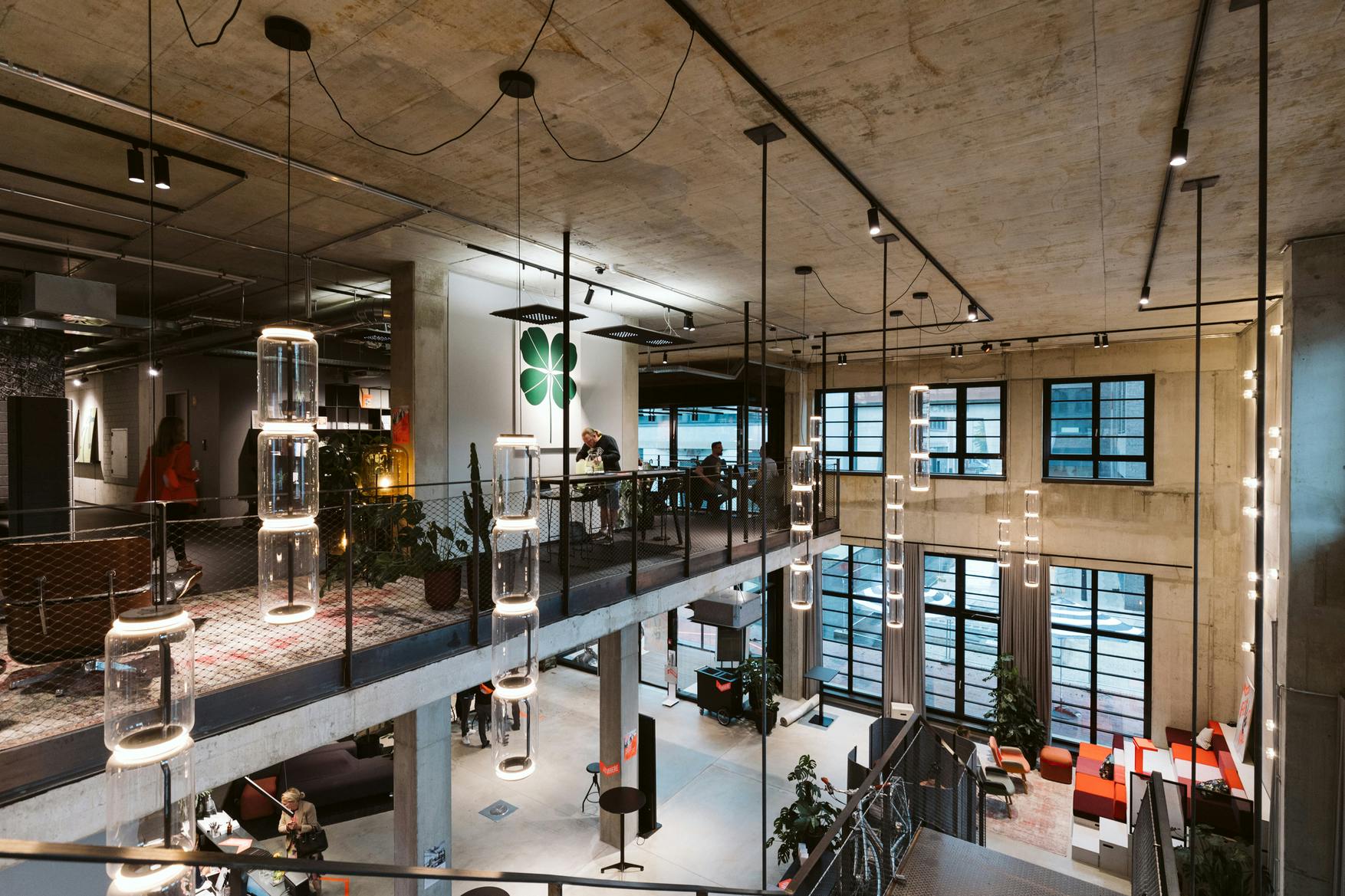Study on Health and Well-being
The working world is experiencing tremendous change. A work environment that is equally appealing, flexible, and functional contributes to employee well-being. Design Offices, in collaboration with Drees & Sommer, conducted a scientifically-based study to investigate how employees perform better and prefer to work together in such an environment.
Background
Health and well-being are becoming increasingly important in the new work landscape. Companies are realizing that their employees' well-being significantly impacts their success. Due to the pandemic, companies are facing the challenge of transitioning employees from remote work back to physical offices – after all, today's office must offer more than just a desk. In line with the motto "Feel good, work better," Design Offices aims to provide people with a place where they can collaborate more effectively and comfortably. At over 45 locations throughout Germany, companies and teams of all sizes use flexible workspaces at Design Offices, including individual offices, short-term bookable meeting and conference rooms, and inspiring coworking spaces. To better understand guest needs and further develop the concept of larger spaces, Design Offices commissioned a study in partnership with Drees & Sommer, experts in Health and Well-being.
Methodology
Based on the premise that the quality of spaces influences both attitude and behavior towards creativity, flexibility, openness, and change, 100 guests from Design Offices locations in Munich Macherei and Leipzig Post were surveyed using various methods.
A foundational analysis was conducted to gather information on functional processes, spatial proportions, and an emphasis on well-being.
A concept consisting of shadowing and an empirical survey (quantitative and qualitative) was developed to determine dependencies of qualities on the space.
The empirical online survey provided insights into the respondents' creativity, flexibility, openness, and adaptability levels.
A network analysis, created from the data, visualized movements and dwell times within the building.
Existing studies and results regarding the performance levels of conventional offices were combined.
The so-called Well-being Score was determined, consisting of 16 scientifically-based parameters, aiming to set benchmarks and categorize properties concerning health and well-being.
»To be creative, we need to express our ideas and share them with others. A comfortable atmosphere is necessary. Design Offices succeeds in creating this. «
Dr. Tobias Eismann, Creativity Researcher and Senior Strategist for Creativity & Innovation, Siemens
Results
The combination of interviews and questionnaires yielded seven core statements.
Factors particularly important to employees:
Flexible Workspaces Energize
49% of respondents found Design Offices to be energizing.Flexible Workspaces Provide New Impulses
86% of respondents gained new, innovative impulses in the work environment at Design Offices.Flexible Workspaces Inspire and Foster Well-being
73% of respondents reported feeling very comfortable at Design Offices.
Factors essential for companies:
Inspiring Environments Promote Mental Flexibility
83% of respondents felt that spatial flexibility supported their mental flexibility in daily work.Interstitial Communication, Beyond Company Boundaries, Replaces Missing Home Office Exchanges
80% of respondents felt inspired by chance encounters in the work environment.Flexible Workspaces Positively Impact Creativity
79% of respondents perceived flexible workspaces as more conducive to creativity than traditional office environments, such as single, 2-person, or 6-person offices.
The resulting DO Office Power Index:
Spatial Freedom Enhances Innovation
57% of respondents reported delivering their full potential in Design Offices spaces.
Download the detailed results report of the Study on Health and Wellbeing by Design Offices in collaboration with Drees & Sommer now:
»For a young, rapidly growing company in the fashion industry's software manufacturing sector, Design Offices provides the perfect balance between ergonomic work and creative output. Professional-level flexibility enables an efficient, comfortable atmosphere.«
Lisa Kohlert, VP of Business Development, CLO Virtual Fashion
Outlook
The study positively validated the hypothesis that the qualities of spaces influence the creativity, flexibility, openness, and change behavior of people in those spaces. The results demonstrate that the working environment at Design Offices positively affects the examined characteristics. One value stands out for Design Offices: 57% of respondents reported consistently delivering their full potential in Design Offices spaces. "This value represents a strong Office Power Index for us," says a delighted Dr. Joachim Gripp, CEO of Design Offices. "The traditional office has outlived its usefulness and must redefine itself as a workplace."
»Knowledge work is on the brink of the most significant transformation in its brief history, and the office of tomorrow will evolve into a supercomputer for physical transactions.«
Raphael Gielgen, Future of Work Trendscout, Vitra


